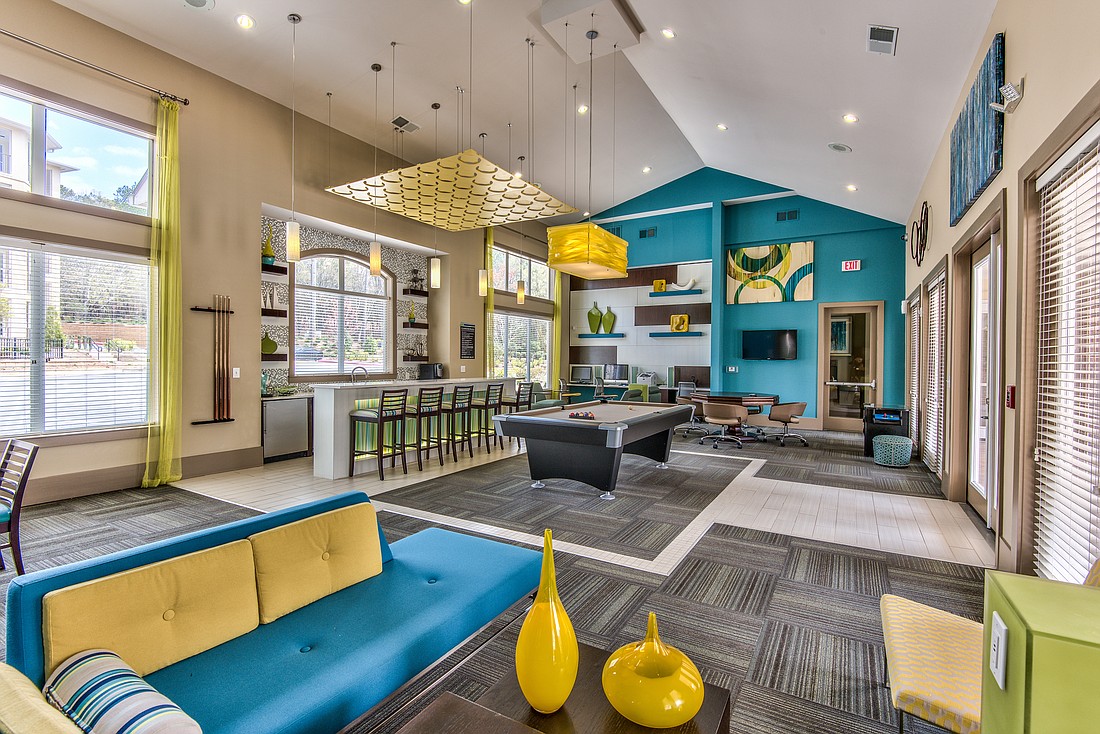- April 4, 2025
-
-
Loading

Loading

What began as an extension of its relationship with hotel operator Marriott International Inc. two decades ago in time blossomed into a service Mainsail Lodging & Development offered throughout the Southeast.
Now, Tampa-based Mainsail is expanding its corporate housing services nationwide with its own brand and plans for future growth, following the acquisition earlier this year of Virginia’s Commonwealth Corporate Suites and a pivot away from Oakwood Worldwide, for whom Mainsail had been a franchisee.
Through Mainsail Corporate Housing, the company offers temporary accommodations of a month of more to companies and individuals as an alternative to extended stay hotels or other lodging.
In most cases, Mainsail has entered into master leases with boutique apartment buildings to serve client needs, providing fully-furnished dwellings that serve as a “home away from home.”
In all, the company has roughly 50 properties nationwide in its portfolio, but it can quickly add to that figure depending on client need. Most corporate apartments range in size from 700 square feet to 1,215 square feet, renting from $119 per day to $139 daily.
But Mainsail President Joe C. Collier says the company isn’t ruling out buying small properties going forward in markets where client traffic is consistent, either.
“We’ll plan to grow through a mixture of acquisitions and other sourcing,” says Collier, who began Mainsail in 1999 after working for Marriott for 15 years.
“For a lot of corporate clients, they have projects where they need to be in a particular market for a month or more, and what we can offer is more cost effective than a typical hotel room and is more of a residential setting.
“We provide a host of services like housekeeping, so that all anyone has to do is show up with their clothes. The place itself is all set and ready — with WiFi and everything one could want. It’s taking an apartment and turning it into a hotel experience.”
As the COVID-19 has wreaked havoc on hotel owners and operators nationwide, many have searched for ways to augment their revenue streams with new services to make up for decreased occupancy and room rates.
“Corporate housing took a while once the pandemic hit before it was affected, and we reacted accordingly,” Collier says. “But we feel pretty good going forward, because it’s a good value proposition. I think it’ll fully recover at the same rate the wider hospitality business does.”
Mainsail’s corporate housing division — one of four lines of the lodging business the company operates in, together with hotel development, vacation rentals and property management — was fortunate to already be in place and well established long before COVID-19 took hold in March, Collier notes.
Mainsail actually began as a corporate housing provider, when it opened a 360-unit hotel and training center in Tampa for accounting and consulting firm PriceWaterhouseCoopers. Similar assignments for companies like Michelin propelled Mainsail to create footholds in Virginia, North Carolina, South Carolina and Georgia.
Today, corporate housing comprises roughly one-third of Mainsail’s overall revenue, a percentage Collier expects will continue apace even as the company expands by adding to its hotel portfolio.
To keep corporate housing costs in line, Mainsail will often rent furnishings, appliances and other equipment from companies that specialize in supplying them.
Mainsail also requires that clients rent corporate housing furnishings for 30 days or more. On average, customers stay for more than 90 days at a time.
“We simply apply the hospitality skills we’ve developed over the years to the corporate housing industry,” Collier says. “But a lot of it has to do with relationships and proximity to the client. That’s where a lot of the growth and the push nationally has come from.”
Collier notes that while some apartment operators delve into providing corporate housing services, most lack the hospitality industry knowledge necessary to succeed.
“There are a lot of mom-and-pop operators out there, or apartment complexes that try and run corporate housing as part of their rental business,” he notes. “But it’s a different business. It has its own parameters.”
And while Collier is bullish on future growth — by 2026 he hopes to have corporate housing offerings available in half the U.S. and double the business’s size — Mainsail remains focused, first and foremost, on hotel development and operations.
Most recently, Mainsail this fall debuted the $92 million Luminary Hotel & Co., a 243-room, full-service Marriott Autograph Collection property in downtown Fort Myers.
Collier says the hotel has had a “better than anticipated” reception despite the pandemic.
In addition to Luminary, Mainsail operates four other Marriott Autograph properties: Scrub Island Resort, Spa & Marina in the British Virgin Islands; Epicurean Hotel in Tampa; Waterline Marina Resort on Anna Maria Island; and the Fenway Hotel in Dunedin.
Collier says that the company also has a handful of new properties under construction, in an effort to tap into what is expected to be pent-up consumer demand for travel when COVID-19 is brought under control through a vaccine.
In Atlanta, Mainsail is building a 179-room Epicurean Atlanta and a boutique offering known as the Wylie Hotel.
In Pasco County, the company is developing a 128-room Residence Inn adjacent to an indoor sports complex, and in Macon, Ga., it is working to open another boutique lodging project.
Each will be completed and ready for occupancy either next year or in 2022, Collier says.
Eventually, he says he’d like to combine the lodging properties and the corporate housing concept to provide guests with additional choices.
“Ideally, for instance, I’d love to have 300 or so corporate apartments attached to the Luminary in Fort Myers,” he says. “That way, we could cover all the bases. We’ll continue to look for those opportunities.”